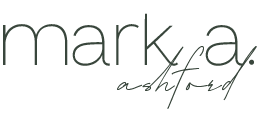Hello. I am Mark Ashford. I am a Registered Reiki Teacher and Practitioner and a Usui Tibetan Reiki Master Teacher as well as a Shaman. I am a published author of books and online courses on Reiki, and Shamanism.
I post a podcast here week on Reiki and or Shamanism. Please Subscribe to Podcast to hear more about these interesting topics. Click one of the following links in the show notes to learn more about our offerings.
For legal purposes the podcast is strictly for entertainment purposes. Listeners have free will and are entirely responsible for any interpretation they place on the show. I take no responsibility for individual listener interpretations or actions.
To learn more about my work click here https://bit.ly/3h3E6I0
The word “witchcraft” elicits the worst stereotypical, virulent, and extremely negative images in most people’s mind. There is almost a conditioned reflex to the word. The term automatically evokes and reinforces images of “ignorance,” “backwardness,” “primitive,” “uncivilized,” “superstitious,” “undeveloped”. It tends to confirm deeply ingrained negative opinions of the society and the individuals who are known as Witch doctors.
A witch doctor was originally a type of healer who treated ailments believed to be caused by witchcraft. The term witch doctor is sometimes used to refer to healers, particularly in regions which use traditional healing rather than contemporary medicine.[1]
In its original meaning, witchdoctors were emphatically not witch’s themselves, but rather people who had remedies to protect others against witchcraft. Within their tribe or community, a witchdoctor was a user of magic, who by use of spells, charms, herbal remedies, and incantations sought to cure illness, detect witches, and counteract malevolent magical influences. Witchcraft-induced conditions were their area of expertise.
Since the missionaries thought that they were introducing civilization into Africa, they denounced African institutions, including African approaches to healing. They referred to medicine-men and women who were highly respected for their services as “witchdoctors”. On the attitude of Europeans to African healing, Ndung’u and Mwaura explain that “The whole process of healing was in the eyes of the missionaries, part of a wide scheme of witchcraft and paganism and had to be eradicated in order to pave way for western civilization and the Gospel” (Ndung’u and Mwaura 2008, 46). [2]
“When people see havoc in medical institutions, powerlessness of doctors, they go to healers. When it’s a child, they want to turn the world upside down to cure it. So, people go to healers searching for miracle. This is not about the level of education of those people who go to healers, but about the level of trust in the medicine offered by the state,”[3]
Whilst no one will deny that the tribes throughout Africa. as a whole, believe in witchcraft it does not follow that the witchdoctor himself is feared or that he is the evil person that many people depict him to be. Indeed, amongst the Shona people he is a much respected and, I might add, a much beloved person, and– if I may be permitted to make the comparison- he is even regarded with the same attachment that the doctor enjoys in European society.[4]
Most Africans believe in the existence of the witch, and to most people the witch denotes a person with an evil spirit capable of causing untold misery, tragedy and death upon any innocent victim. Again, to the Shona people the witch, like the witchdoctor, is spiritually endowed. but with a spirit which operates against the interests of mankind. The witch, like the witchdoctor, also inherits a spirit, generally from the mother, and this trait is handed down in the family. The witch practices witchcraft and is able to manipulate occult forces to the detriment of man–quite the opposite to the witchdoctor, who operates the forces for the good of mankind. Thus, the only difference really between the witchdoctor and the witch is the eternal difference of good and bad.[5]
The fountainhead of the belief in magic and witchcraft is the witchdoctor, and the continuance of this philosophy rests on him. As long as he exists, so long can we accept his presence as the indication of his people’s belief and dependence on magic and witchcraft. Once he goes this extraordinary ancient philosophy will disappear as well.
The witchdoctor’s functions thus extend far beyond the mere prescribing of an herb, albeit this be an important aspect of his practice. He is the hub around which the magical or spiritual world revolves, giving succor and support to those in need and at the same time being the means of ensuring good behaviour.[6]
The roles of the witch doctor are very different from the Shaman in this context and is reliant on the existence of a witch, someone who communicates with the spirit world to do harm to others. As with the Medicine Man/Woman, described earlier, many of the attributes of the shaman are not present when discussing witch doctors.
Interestingly, the men and women in Europe recognized as white witches who practice witchcraft. the only difference from the witch discussed here is that a white which serves the people, and is much sought after to cure their diseases. Therefore, the white witch really corresponds to the African witchdoctor and in essence there is no difference between the witchdoctor and the white witch except in their handling of the powers of Nature.[7]
I hope you found the podcast enjoyable and informative. Please subscribe to the podcast and click the links in these notes to find out more about our books, Online Courses, Social Media, our Patreon Page to support the channel. Thank you, and I hope to speak to you again soon.
Bibliography
Alyaeva, Dinara. Director, Pomogat Legko, Russia.
GELFAND, MICHAEL. “Medicine and Magic.” The Central African Journal of Medicine.
Mumo, Peter M. “Holistic Healing, an Analytical Review of Medicine-Men in African Societies.”
Wikipedia. “Witch Doctor.”
[1] Wikipedia, “Witch Doctor.”
[2] Peter M. Mumo, “Holistic Healing, an Analytical Review of Medicine-Men in African Societies.”
[3] Dinara. Director Alyaeva, Pomogat Legko, Russia, Interview.
[4] MICHAEL GELFAND, “Medicine and Magic,” The Central African Journal of Medicine.
[5] Ibid.
[6] Ibid.
[7] ibid.

 Cart is empty
Cart is empty